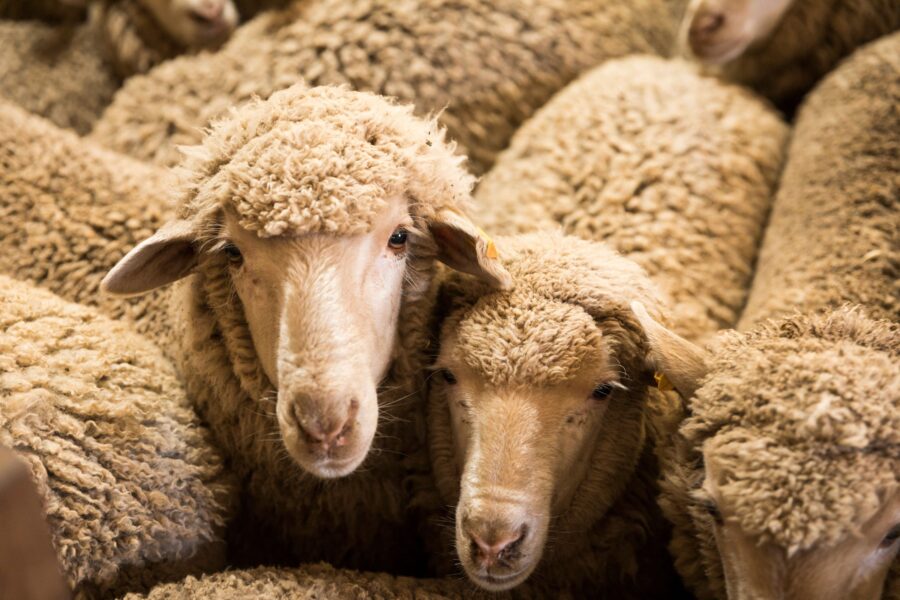Sheep the ideal animal for domestication

While humans have been domesticating animals like dogs, cats and even elephants for tens of thousands of years, sheep may be the mammal most suitable for taming, new research suggests.
A recent study by the CSIRO, published in the journal PLoS Biology shows that sheep are among the most genetically diverse of all the animals humans have tamed – even more than dogs or cows. This broad genetic diversity makes them ideal prospects for future breeding in order to further increase wool and meat production.
The researchers studied sheep ancestry over the past 11,000 years by collecting DNA from 2,819 sheep from 74 breeds from around the world. His team mapped out how humans have moulded sheep to suit diverse environments and to enhance the specialised production of meat, wool and milk.
Domesticating sheep
“Frequent mating and strong gene flow between animals of different breeds has ensured that most modern sheep breeds have maintained high levels of genetic diversity,” says Dr James Kijas from the CSIRO and lead author of the study. Alternatively, cats and dogs have a comparatively high level of inbreeding, he says.
Sheep were among the first animals to be domesticated, around 11,000 years ago in the Fertile Crescent, in modern-day Egypt; the Levant; Turkey; and Iraq, before even the emergence of civilisation. Domestication involves breeding favourable characteristics in – such as size, fertility and docility – and unfavourable ones out – such as inherited diseases and ferity.
And while other animals such as dogs, cattle, pigs and goats have been domesticated for roughly the same length of time, higher levels of inbreeding have left them with a much lower genetic diversity, and therefore less potential to improve.
Sheep not so inbred
“The genetic bottleneck was not as severe during the development of sheep as for some other animal domesticates”, James wrote in the article. This has provided sheep with a “wide genetic base,” he says, “allowing for future generations of sheep to improve.”
And this provides the sheep farming industry with many future benefits. Finer wool and better meat and carcass characteristics for the farmers provide the opportunity for more lucrative flocks in the future, while the lower chance of inherited recessive diseases and the opportunity to breed an increased resistance to parasites shows the potential benefit of the research.
And given that Australia is one of the most prolific sheep-farming countries in the world, this research could be very good news indeed.

